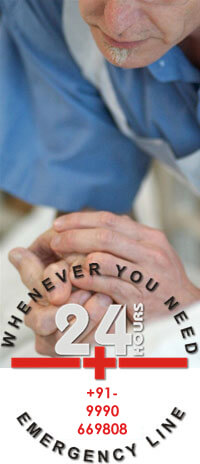First Aid - Nosebleed
Nosebleed
A human nose is rich with small fragile blood vessels which are susceptible to damage. A nosebleed may be caused by a fall, a strike to the nose, or even from breathing excessively dry air.
A nosebleed may look alarming, but most often it is not a cause for concern. First, you need to calm the person who is having the nosebleed.
If the nosebleed is not a symptom of a more serious injury, it is rarely dangerous and can usually be stopped by applying continuous pressure.
- Do NOT tilt the victim's head backward.
- Sit the person down: Have the person sit down and lean forward slightly to avoid blood from running down the back of their throat.
- Loosen any tight clothing around the victim's neck.
- If possible, have the victim spit out excess saliva - swallowing may disturb the clot and cause nausea.
- Pinch the nostrils: Ask the person to pinch their nostrils together for 5 to 10 minutes while breathing through their mouth. This pressure will help stop the bleeding by compressing the blood vessels in the nose.
- Apply an ice pack: Applying a cold compress, such as an ice pack or a bag of frozen vegetables wrapped in a towel, to the bridge of the nose can also help reduce the bleeding.
- Check for other injuries: If the nosebleed was caused by a head injury, you should check for any other injuries or symptoms such as dizziness, confusion, or loss of consciousness. If these symptoms are present, call for emergency medical help immediately.
- Seek medical attention if necessary: If the bleeding persists for more than 20 minutes, or if the person is experiencing significant pain or difficulty breathing, it may be necessary to seek medical attention.
- Once the bleeding has stopped, the victim should avoid blowing his nose or otherwise straining himself for at least an hour.
It's important to note that if the nosebleed is severe or is caused by a serious underlying medical condition, such as high blood pressure or a blood clotting disorder, it may require more advanced medical treatment.
If the victim's nose continues to bleed or if the blood flow appears to be excessive, or if the victim feels weak or faint, the damage may be more serious than it appears. You should call Ambulance @ 1-1-2 or take him to the nearest emergency room as soon as possible.
When to seek emergency care
- If nose bleeding continues for more than 30 minutes
- You injured person faint or lightheaded
- If nosebleed after an accident, a fall or an injury to your head, including a punch in the face that may have broken your nose
Learn more about First Aid For Nosebleed, and other Medical Emergencies, in online Classes run by a 24x7 Medical Service at Delhi First Aid and CPR Training institute New Delhi. Sign up for a class online at Delhi First Aid and CPR Training Institute.


































